A few days before Christmas 2016, a phone call took place that no one could have predicted.
One of the world’s most esteemed HIV doctors, Professor Sheena McCormack – whose life’s work as an epidemiologist has been to track and fight the virus – picked up the phone to deliver a message that would make headline news: In the space of 12 months, the number of gay men in London being diagnosed with HIV had dropped by 40%. Across England it was down by a third.
No British doctor has been able to report a fall this steep in more than 35 years of the virus. It is the kind of figure that in medical circles is so large as to look jarring, even false; and yet it was true.
Behind this story lay a series of secret meetings and a network of people with one man at the centre who, unknown to the public, helped change medical history. His name is Greg Owen. He was the man McCormack phoned. Today his story is told in full for the first time.
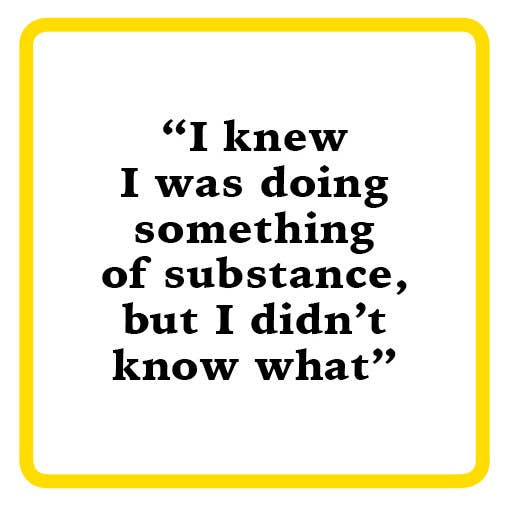
Owen sits in an echoing meeting room in the BuzzFeed News office recalling that conversation, and what it was that McCormack really wanted to convey to him about those figures.
“She said, ‘Don’t look at the percentage; I want you to look at this another way. There are thousands of people who didn’t become HIV-positive this year because of you.’”
Owen started to cry. And after that call, he says, he used to cry every day.
“I knew I was doing something of substance, but I didn’t know what. It feels really good but it’s really overwhelming because how many people in my position get to do what I did?”
The man McCormack credited with this unprecedented reduction in HIV transmissions was not a fellow doctor, nor the head of a charity, nor even a politician. Owen is unemployed, a former sex worker, and homeless.
What he managed to pull off – and why – is so outlandish it warrants comparisons with Ron Woodroof, the AIDS patient depicted by Matthew McConaughey in Dallas Buyers Club, who in 1980s America smuggled in unauthorised HIV drugs for desperate fellow sufferers.
The difference is that Woodroof’s was an outrageous story that ended in tragedy. Owen’s is a tragic story that ends in outrageous success.

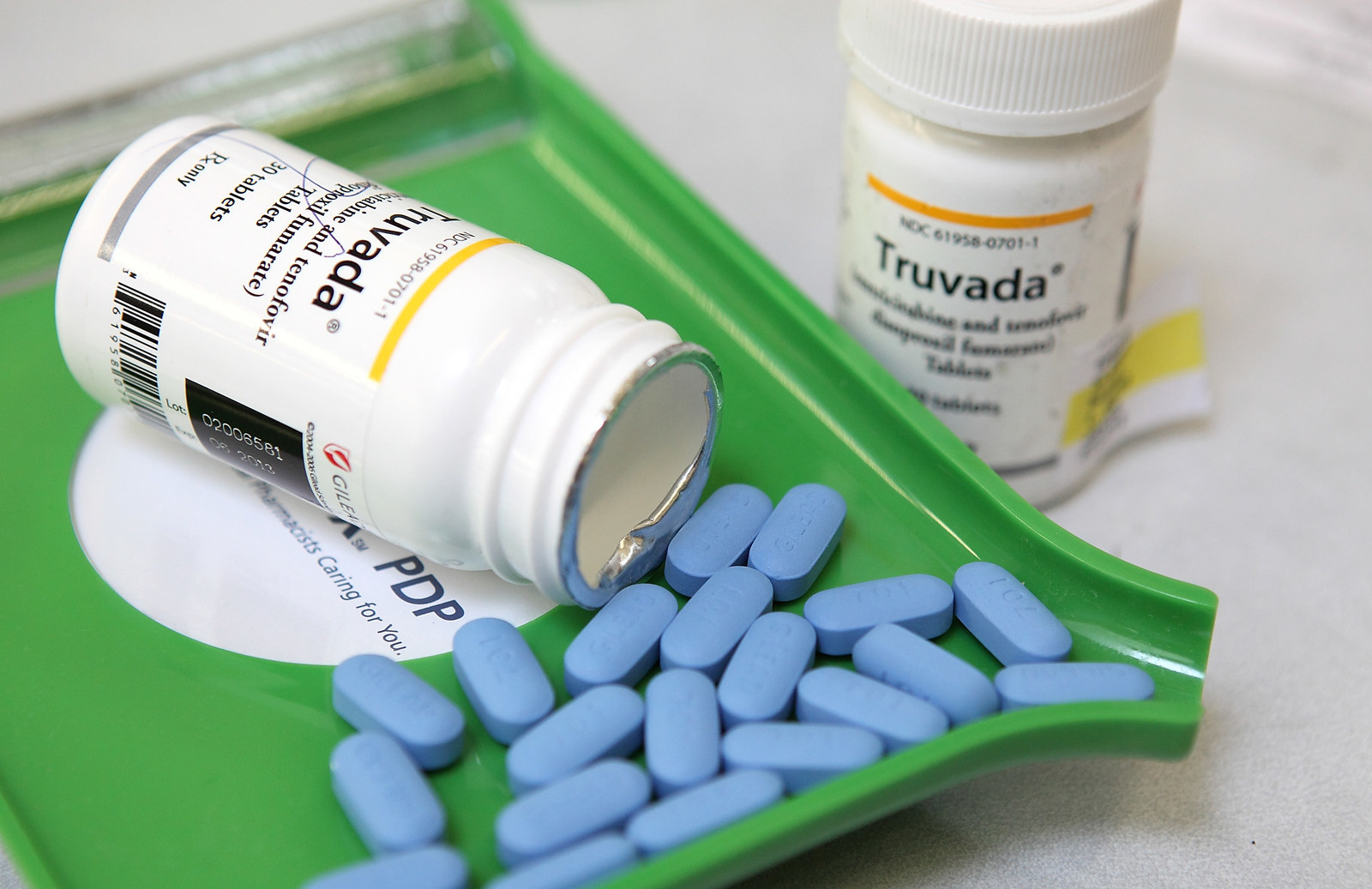
In the summer of 2015, Owen was 35 and working part-time as a barman and club promoter. One of six children, from a working-class Catholic family in Northern Ireland, he had come to England to train as an actor before finding his way into London’s bacchanalian nightlife. That summer, he was trying to make a difficult decision.
He had heard about a new drug regime that was being used to prevent HIV. The medication’s brand name is Truvada, and the regime – which involves taking this antiretroviral pill every day – is dubbed PrEP: pre-exposure prophylaxis. Owen, fearful of contracting the virus amid this unleashed world, couldn’t decide whether to start taking the drug, let alone how to obtain it.
PrEP was not available on the NHS and a private prescription would cost about £500 per month. But a major NHS study was underway to ascertain how effective the drug was, and who should be given it. The study, called PROUD, was being run by Professor McCormack.
“I heard about the PROUD study at a sex party,” says Owen, casually, in the middle of a much longer sentence. He talks at twice the speed of most people, with clauses within clauses and tangents branching from other tangents in a bewildering cascade of verbal Russian dolls.
The problem was that Owen was too late to enrol in the study. He was also increasingly aware of his own chaotic situation: After a relationship breakdown and a suicide attempt, Owen was sleeping on friends’ sofas and sliding into full escapism mode.
“I’d gone through enough risk-taking,” he says in his soft Belfast accent. “I was like, ‘You know what? I just need to do this – I take GHB and smoke crystal [meth] all weekend.’”
But there was another reason for Owen's determination. He had watched someone he loved (who we cannot name in order to protect their anonymity) fall apart after being diagnosed.
“He was in a really bad state,” says Owen. The man descended so far into the drugs scene in an attempt to blot out the diagnosis that he had had a heart attack soon after. “He was having a breakdown. Everything was fucked.”
After trying in vain to help him, Owen focused on remaining HIV-negative himself and seeing if there was some way to help HIV-positive people more generally.
On 11 August 2015, Owen posted on Facebook to let his friends know that he planned to begin taking PrEP. A friend, who was HIV-positive and had been prescribed the drug as part of his treatment before switching medication, offered him some spare pills. Owen’s plan was to start taking them and blog about his experiences – a “blow by blow” account, he says, laughing. Owen laughs a lot when he isn’t raging, frowning, or grinning with delight – often with a frenzy of gestures. He is rarely still.
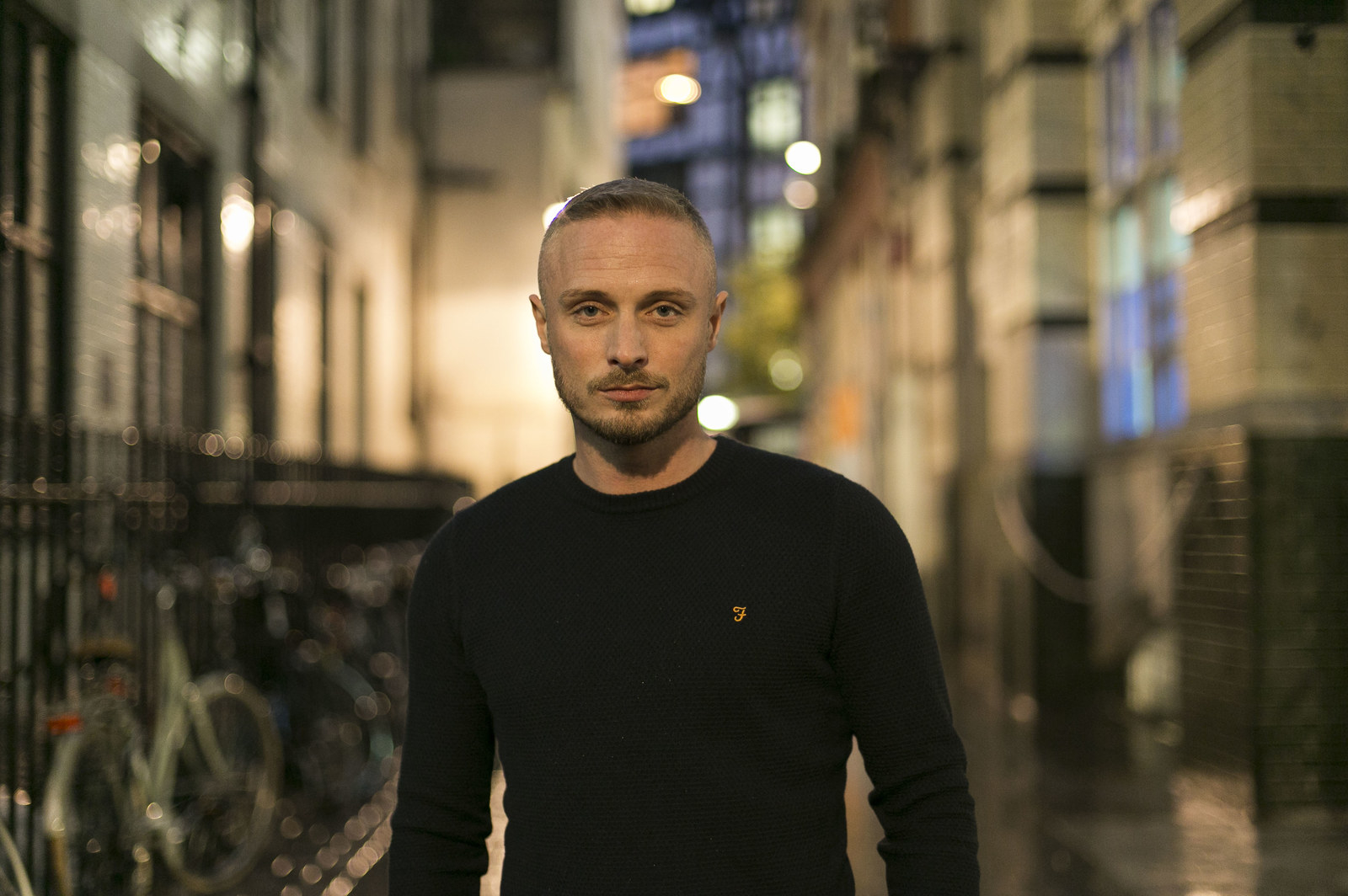
The day after the Facebook post, he went to a sexual health clinic to double-check he was HIV-negative before taking the pills. Moments later, the nurse gave him the result of the rapid pin-prick blood test: It was positive. He had missed his chance to prevent it.
“I felt sick,” says Owen. “I said, ‘I need to have a cigarette.’ I was in shock.”
The following evening, aware that his friends on Facebook would soon be asking how he was getting on with PrEP, and while working a shift in a gay bar, Owen posted an update on the site telling everyone he was HIV-positive.
That single act triggered a chain of events that would change everything.
“When I came out on my break two hours later, I had 375 likes, 175 comments, 50 shares. I was like, ‘Sweet Jesus,’” he says. “Then I opened my Messenger – streams of disclosures and supportive messages from people. I must have had 50 or 60 people in two hours saying, ‘I can’t believe you’ve done that, I’m HIV-positive as well and I haven’t told anyone,’ or, ‘I have only told my family and you’ve told 5,000 people.’”
But then the messages started changing. “People were like, ‘What is this PrEP thing and if you had it why wouldn’t you have become HIV-positive?’ It got to a point within a week where I would get 10 people a day asking me about PrEP – and that’s 10 people asking 10 questions each.”
Keen to get on with life and with his blog, Owen found the questions from acquaintances and strangers were proving a near-constant interruption. He told his friend Alex that something had to give. And it was then that he remembered something.
“I was like, ‘I’m sure I was at a meeting somewhere and heard you can import generic hepatitis C drugs for a tenth of the price,’” he says. This thought fused with the need to rid himself of the endless inquiries, or “these fucking bastards asking me about PrEP”, as he puts it.
He decided to set up a website with all the information he could find, thus allowing him to “walk away from PrEP”. He laughs at the irony. It would prove to do the opposite. The idea for the site wasn’t only to provide facts; it was also going to help readers buy cheap, non-branded versions of the drug – known as “generics” – from manufacturers overseas.
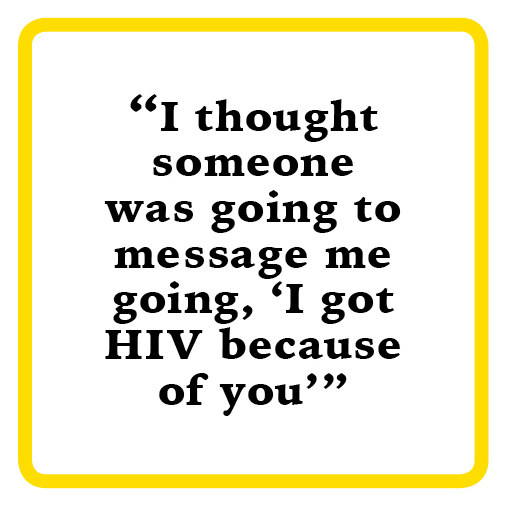
Owen just had to figure out how to do this. He knew someone who worked in a sexual health clinic, whom he prefers not to name, for reasons that soon become clear. He phoned the man up.
“I said, ‘I’m aware we can maybe import something? Do you know anything about this?’ And he replied, ‘Yeeeeees. Come in tomorrow at 3pm.’”
The next day they met in the clinic. Owen was told to keep everything confidential.
“This person said, ‘We have a handful of people who use our clinic and they have been self-sourcing generics from this website and we have been discreetly doing the monitoring – discreetly checking their blood periodically to check that there’s active levels of the drug.’”
In one sentence, everything was possible. There was somewhere to buy the non-branded versions of the drug – and at around £50 a month, a tenth of the price of a private prescription. And there was, potentially, a way to ensure the drugs were working properly. At the time, because PrEP was not available on the NHS, neither – officially – were the urine and blood tests needed to check that the drugs were not adversely affecting kidney function (which some antiretrovirals can do) and were not fake.
The man in the clinic, says Owen, then made the possible workable: He showed Owen which websites were supplying this handful of patients with the generics, and which ones they knew – because they had run the tests – were supplying the effective pills.
“I said, ‘So this is legit – legit but dodgy. Can we do this?’ And he said, ‘Not only can you do this; you must do this. We’ve been waiting for someone to do this. We’re diagnosing people every day and do you know how heart-breaking it is to know that PrEP would stop it and not be able to do something?’”
And that, says Owen, was all the motivation he needed. He and his friend Alex spent a few weeks building the website, gathering as much information as they could, and including a simple click-to-buy button that linked through to the pharmacies in Asia that sold and shipped the generics. They called it IWantPrEPNow.co.uk.
“At the time I was shitting myself,” he says. “I was thinking, It’s not like I’m selling Viagra that might work or might not work – the worst that happens is you don’t get a boner – I’m selling drugs where people might rely on it for their HIV protection.”
But by then, September 2015, the results of the PROUD study were in: PrEP was enormously effective – comparable to condoms – but unlike condoms, this pill is not reliant on people being able or willing to implement the precaution at the very moment when desire can overwhelm. Add in drugs or alcohol, low self-esteem or even self-destruction, and the underuse of condoms across all demographics is hardly surprising. PrEP offered a viable alternative.
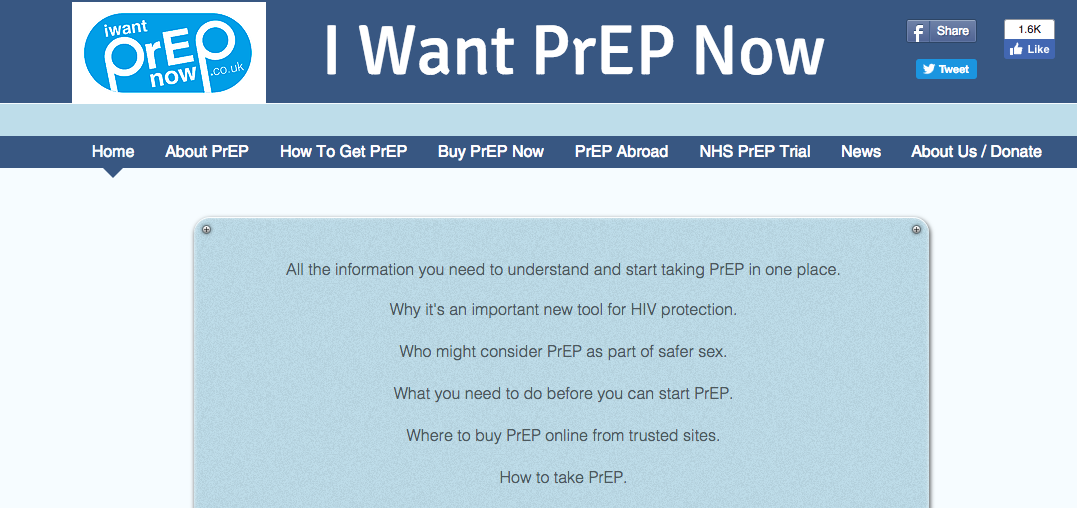
What was surprising in the PROUD study, however, was that rates of other STIs weren't significantly higher among those taking the pill. The fears of many were therefore unfounded. For Owen, then, as long as the overseas online pharmacies kept selling decent alternative versions to the branded drugs, everything would be OK.
The website launched on 19 October 2015, and for the first two months, Owen says, he was simply “fronting it out”, having to pretend he was feeling confident. He was also still sleeping on friends’ sofas.
“I didn’t know anything!” he says. “I had no clinical background, no pharmaceutical background, nothing. For the remainder of the year I thought someone was going to message me going, ‘I got HIV because of you.’”
But something propelled him forward, muzzling the self-doubts: the person he loved who had a heart attack, coupled with the knowledge of his own HIV status. He tries to explain how this motivation manifested, in a mission to compensate for what had happened to the two of them.
“All I was out to do was to even out the score for him and me,” he says. “My whole goal was that if I helped keep one person negative then my HIV status is equal, and then one more person means that I won. I don’t deal in shame or guilt or regret but [the thought was], ‘I’m going to make my situation count.’”
Within days of launching, traffic started flowing into the website, fanned by Owen blitzing social media with posts about it. The questions he hoped would disappear only mounted. Media requests began trickling in: a chance to talk on the radio in Bristol about PrEP and his website. “I was like, ‘Why would I want to do that?’ I didn’t understand jack shit. I couldn’t even pronounce emtricitabine and tenofovir [the constituent drugs in Truvada]. I was winging it.”
He took a four-hour coach journey to Bristol, spoke for 20 minutes on the show, then took the four-hour journey back. “I was so broke I had to borrow my travel money.” The traffic to IWantPrEPNow immediately spiked.
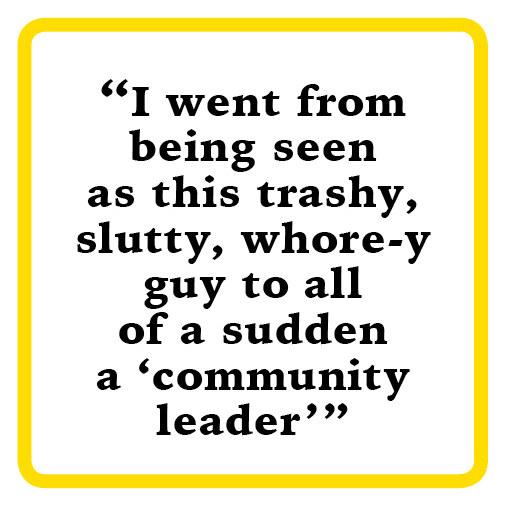
After this, he says, “it all started going crazy”. The website was being inundated with requests and queries, the answers to many of which Owen had to google. “It was the blind leading the blind,” he says, glaring as if still on a white-knuckle ride.
Staff at sexual health clinics, meanwhile, had the tool they needed: a URL to give to patients who were interested in PrEP. It caught the attention of an HIV consultant, Dr Mags Portman, at one of the country’s leading sexual health clinics, the Mortimer Market Centre in central London. She contacted Owen and arranged to meet him round the corner from the clinic, over a glass of wine. It would prove pivotal, he says.
“She said, ‘What can I do? What are you struggling with?’ And I said, ‘I’m learning as I go but I need credibility and visibility.’ And she said, ‘Leave it with me.’”
Portman made a crucial move. She contacted the General Medical Council, to seek advice on how sexual health doctors could respond to patients interested in PrEP or already accessing the drugs when the NHS still wasn’t providing them.
“Clinicians were anxious about even discussing it [with patients],” says Owen. “And the GMC directed her to something that was already established and given as guidelines. It basically says it is your responsibility as a doctor to advocate for the best treatment for your patient, even if it’s not commissioned. In other words, the GMC gave the green light to initiate the conversation around PrEP.”
After this, increasing numbers of gay men started turning up to clinics saying they were buying generic PrEP online and asking for the urine and blood tests – known as therapeutic blood monitoring. And within weeks, more and more sexual health clinics started offering the service to cater to the demand. Thanks to Portman’s discussions with fellow doctors, the Mortimer Market Centre also brought Owen in to train medical staff about PrEP.
“I thought it was hilarious,” says Owen, laughing at what seemed like an absurdity. “Now I’m giving staff training to professors and doctors?” But he knew why they wanted him there. “The thing is, I speak with hundreds and thousands of PrEP users across the world all the time. I know what they need, I know what will encourage them to be honest with clinicians.”
Meanwhile, he was working round the clock, often responding to inquiries on IWantPrEPNow through the night, and spreading the word about the service on Twitter and Facebook. In the first couple of months, the site had around 2,500 unique visitors. This may not seem a huge number, but with around 6,000 people in England being diagnosed with HIV per year it was significant – and it was soon going to rise.
A new and unexpected battle began in March 2016. After 18 months of discussions with the HIV sector, NHS England derailed the commissioning process – the path that leads to a drug being funded – for PrEP. Suddenly, all the doctors and charities who thought that it might soon become available to patients were left disappointed. And Owen, who thought he would need to keep the website going for only a few months until the NHS took over, now faced the prospect of this becoming his life for the foreseeable future.
The resulting publicity surrounding the decision, however, had an interesting effect: More and more people were becoming aware of the drug and, says Owen, seeking it out on IWantPrEPNow. Traffic began to double and triple. His social media presence swelled, fuelling further traffic and media traction: appearances on the BBC, more radio discussions, more press coverage. Greg Owen was becoming Mr PrEP.
In response to NHS England’s decision, all the major HIV charities joined forces to fight it. A series of meetings ensued. Owen was the only activist invited to attend, as every HIV specialist knew that he was the main link to thousands of people wanting the drug. BuzzFeed News was the only media organisation allowed in.
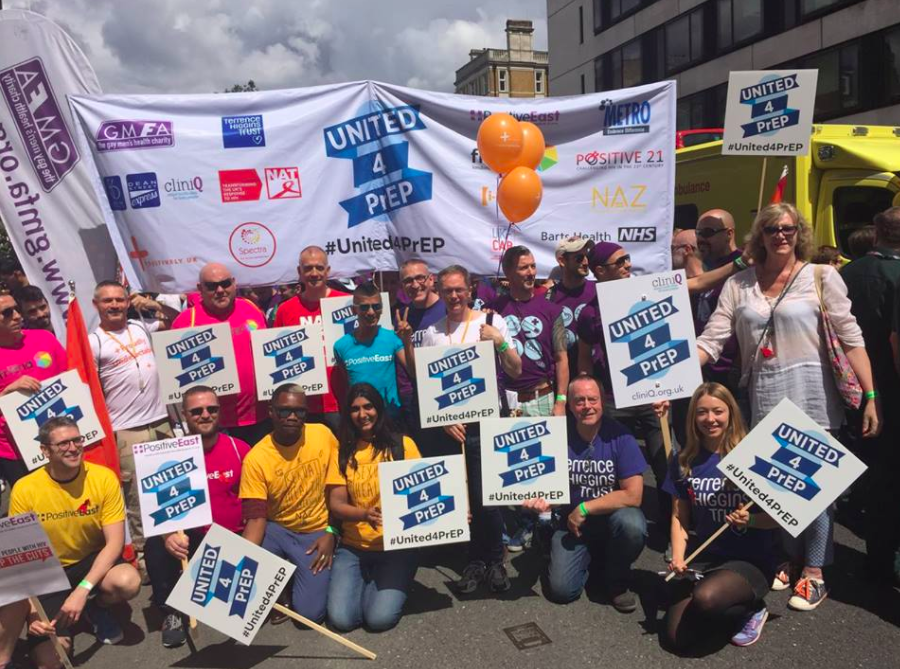
As respected doctors and leaders of long-standing NGOs carefully strategised, Owen would interject, often loudly, sometimes interrupting people who he deemed to be veering off topic, and sometimes seemingly close to banging his fists on the table as he conveyed what PrEP users and fellow activists from around the world were telling him: Not only did people in Britain need this drug, but also if the NHS provided it, major healthcare systems in other countries would be likely to follow suit. His heightened manner and rapid-fire delivery bellowed one thing: This had to be fought, urgently, and they had to win.
A legal battle commenced, brought by the National AIDS Trust, to counter NHS England’s claim that it was not their responsibility to provide PrEP as HIV prevention was the job of local councils. At each step of this process, as news reports described what was happening, traffic to IWantPrEPNow continued to climb.
By the time NHS England lost in the High Court in August last year, 12,000 people were visiting the site every month. NHS England swiftly appealed the ruling. Orders of generic PrEP kept rising.
Meanwhile, on hook-up apps for gay and bisexual men such as Grindr and Scruff, increasing numbers of users started stating on their profile that they were on PrEP. This was also happening across Europe: Although most visitors to IWantPrEPNow were from Britain, many from a range of continental countries were buying PrEP through the site and having it shipped to them.
As the NHS stalled, an underground movement, facilitated by Owen, was in full swing.
“The whole experience was really weird,” he says. “On a personal level, I went from being seen as this trashy, slutty, whore-y guy who was always hanging out of a club in Vauxhall to… all of a sudden I was seen as this ‘good gay’…this ‘community leader’.”
To Owen, it made no sense. “I’m thinking, You don’t know I have to walk sometimes because I can’t afford my Oyster [the London bus and tube pass]. You don’t know that I’m literally eating once a day because I’m so broke, and I’m sleeping on someone’s sofa because no one is going to pay me to do this. I am no different to how I was when I was a sex worker.”
By August he had given up two different part-time bar jobs to focus solely on IWantPrEPNow – unpaid. Broke and working 60 to 70 hours per week, sometimes he would go home to his mother’s in Belfast and run Britain’s main gateway to HIV-prevention drugs from her kitchen. She was an immense support throughout, he says.
Last summer, a doctor, who Owen prefers we do not name, asked for his bank details. The doctor gave him £1,000 to help with the running costs of the site.
In November, NHS England lost its appeal: It could commission PrEP. And the following month, a statement was made: It would provide the drugs for 10,000 people over three years – which will begin early this summer – before a bigger rollout.
When the announcement came, at midnight on 4 December 2016, Owen was temporarily in Belfast doing a shift behind a bar. “I’m serving pints, I asked for five minutes off, Twitter and Facebook went mad and for about an hour, every time I turned round from the bar I’d be sobbing and have to dry my eyes and carry on serving pints.”
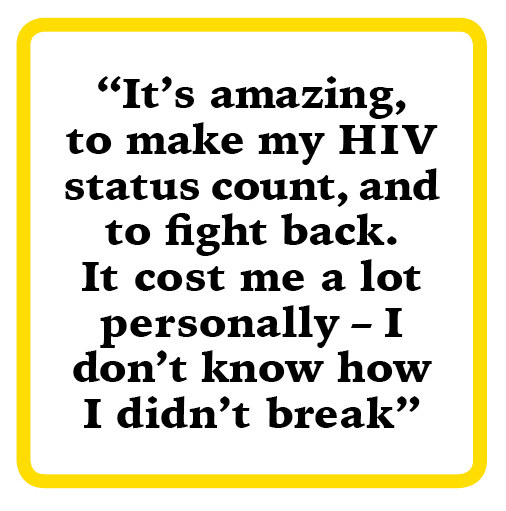
By then, he had already heard that some of the London sexual health clinics were seeing a massive drop in HIV diagnoses. But soon after the announcement, Professor McCormack phoned him to confirm it and to thank him for what he had done.
“She said, ‘It’s all very well us doing this – professors, doctors, researchers – but you did something that none of us could have done. You convinced people that they would want to use PrEP because you showed them how easy it was. And then you implemented support for them and then made it easy for them to buy it. None of us could have done that because none of us are you.’”
In McCormack’s own London clinic alone, says Owen, 300 fewer people were diagnosed with HIV in 2016. And when McCormack speaks to BuzzFeed News, she is quick to emphasise the role of IWantPrEPNow in the drop in diagnoses.
“It’s been absolutely critical,” she says. “As clinicians I think we realised that it was going to be far too slow even if the NHS had commissioned a PrEP programme. And if IWantPrEPNow hadn’t come along, we would not have been able to signpost people [to it], or to very quickly come together with Greg to work up a safety net to make sure the drugs people were accessing were real.”
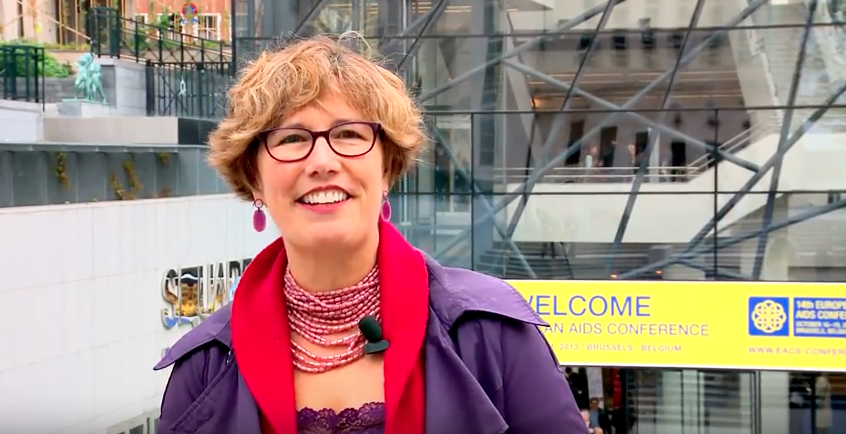
There is, for McCormack, no question about what led to the fall in new infections. In the years leading up the end of 2015, a swath of new efforts were being made by sexual health clinics to increase testing and treatment, in the hope that that would bring new cases down – and it failed to do so. “The main reason is PrEP,” she says.
Not only did IWantPrEPNow provide access to it, but also the increases in traffic to the site correlated precisely with both the rise in patients on generic PrEP drugs coming into clinics as well as the decline in transmissions.
“Inquiries to the website peaked in July and stayed at a very high level since,” she says. “And if we look at our numbers of new PrEP starters, they peaked around that time and that’s when we started to notice a very big drop in new infections.”
The effect of Owen’s website has not only been seen in the UK, says McCormack. “It’s people in Europe who also don’t have access to PrEP and they also use IWantPrEPNow and find ways to access their drugs with the UK mechanism.” Rates of new infections in key European cities such as Barcelona and Amsterdam have also been plunging in the last year, she adds.
The total number of people who remained HIV-negative because of IWantPrEPNow may never be known precisely but for McCormack the scale of it and the overall picture, never before seen, is overwhelming for those working in the field.
“It’s indescribable,” she says. “It’s the ultimate reward for everything you do – or you try to do – to actually see this kind of difference. It’s the impact you dream about.”
Owen echoes this. “It’s amazing,” he says. “To make my HIV status count, and to fight back. It was really taxing and it cost me a lot personally – I don’t know how I didn’t break. I look back, the past 18 months, and think, Wow. I did the best I could do. Life went to shit, the failed suicide attempt, and I couldn’t figure out what I’d done wrong, and now I think if I hadn’t taken so much interest in HIV, I wouldn’t have been as dedicated to wanting to rectify that and even up the score. I look at all those things and think, OK, right, now it makes sense.”
He talks again about the person he loved who contracted the virus and nearly died
of a heart attack. “I couldn’t stop him falling apart,” he says, sadly. And as
we leave the BuzzFeed News office and venture out into Soho, the longstanding
heart of gay London, where generations of gay men have met and had sex and
forged relationships, Owen stops and for the first time seems still. “I spent a
lot of years after that needing to get rid of the guilt.”

